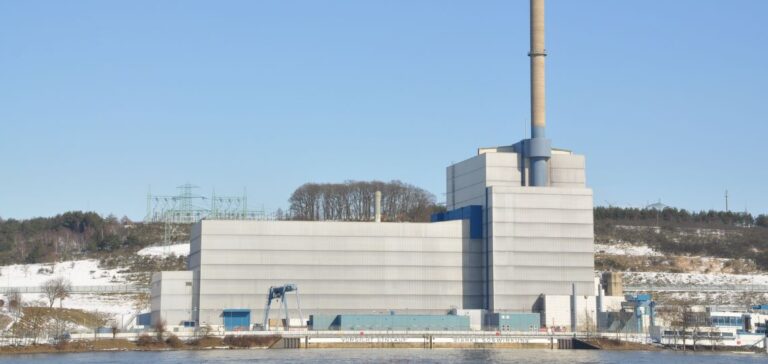Germany continues its nuclear phase-out policy with the official start of the decommissioning of the Krümmel nuclear power plant.
The plant, operated by Vattenfall and co-owned with EOn, has received regulatory approval from the nuclear supervisory authority in Kiel to begin decommissioning its infrastructure.
This decision comes after several years of procedures and preparations, marking a significant step forward in the process of closing down the country’s nuclear reactors.
Krümmel, located in Schleswig-Holstein, was commissioned in 1983 with a 1260 MWe boiling water reactor.
However, it has experienced several incidents that have led to extended shutdowns, including a transformer fire in 2007.
Following the Fukushima disaster in 2011, Germany decided to withdraw the operating licenses of several reactors, including Krümmel, as part of its nuclear phase-out policy.
Since then, the site has been preparing for its complete dismantling, which is estimated to cost €1 billion.
Complex, gradual dismantling
Dismantling Krümmel is a painstaking process that will take around 15 years.
Since 2015, Vattenfall has been working to reduce the radioactive inventory at the site.
To date, 99% of radioactive materials have already been removed, including fuel elements.
The next step will be to dismantle the internal components of the reactor vessel, which account for most of the remaining 1% of radioactivity.
Work on these components is scheduled to start by the end of the year and run until 2027.
The complexity of this operation lies in the need to dismantle each part of the reactor safely and in compliance with strict standards.
Each phase of dismantling must be individually approved by the authorities, making the process particularly scrupulous and regulated.
Vattenfall intends to draw on the experience gained during the dismantling of the Brunsbüttel power plant, also underway in northern Germany, to successfully complete this operation.
Challenges and prospects for Germany
The dismantling of Krümmel is part of a wider process of denuclearization in Germany, where several power plants are currently in the process of being decommissioned.
This process raises considerable challenges, particularly in terms of nuclear waste management and site rehabilitation.
The transformation of sites into “greenfield” zones represents a major ambition for Germany, which is seeking to reallocate this land to non-industrial uses.
The progress of Krümmel’s decommissioning will be closely watched by industry players, both for the lessons it could offer and for its potential impact on the country’s energy strategy.
The closure of Germany’s nuclear power plants is accompanied by an in-depth reflection on the country’s energy future, with renewable energies playing an increasingly important role.
Industry professionals are following these developments with interest, well aware of the technical, economic and environmental implications of this transition.






















